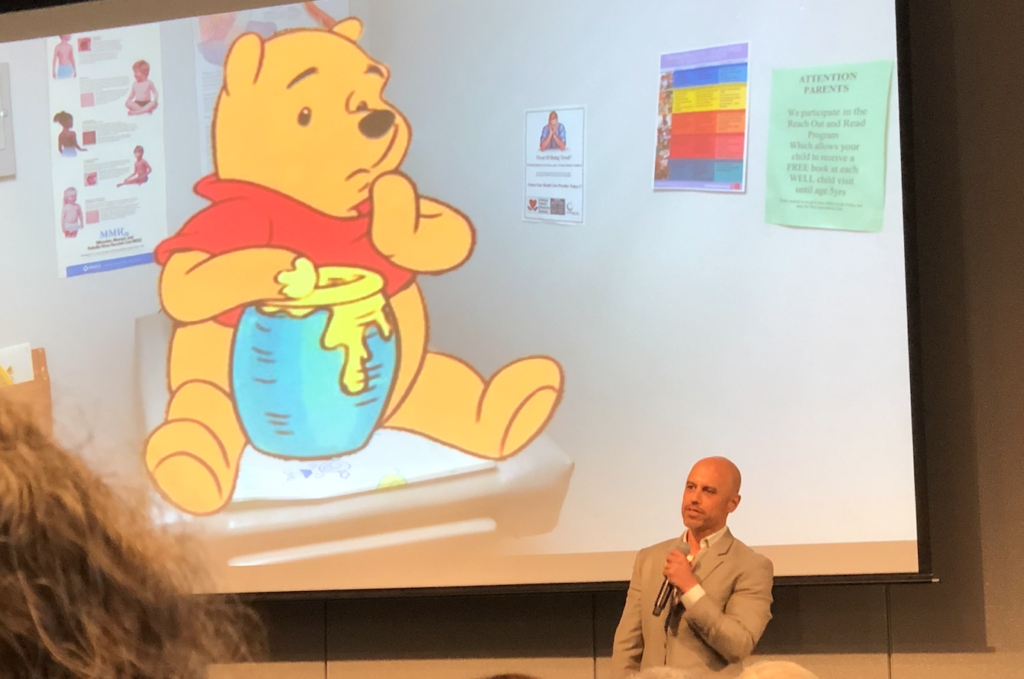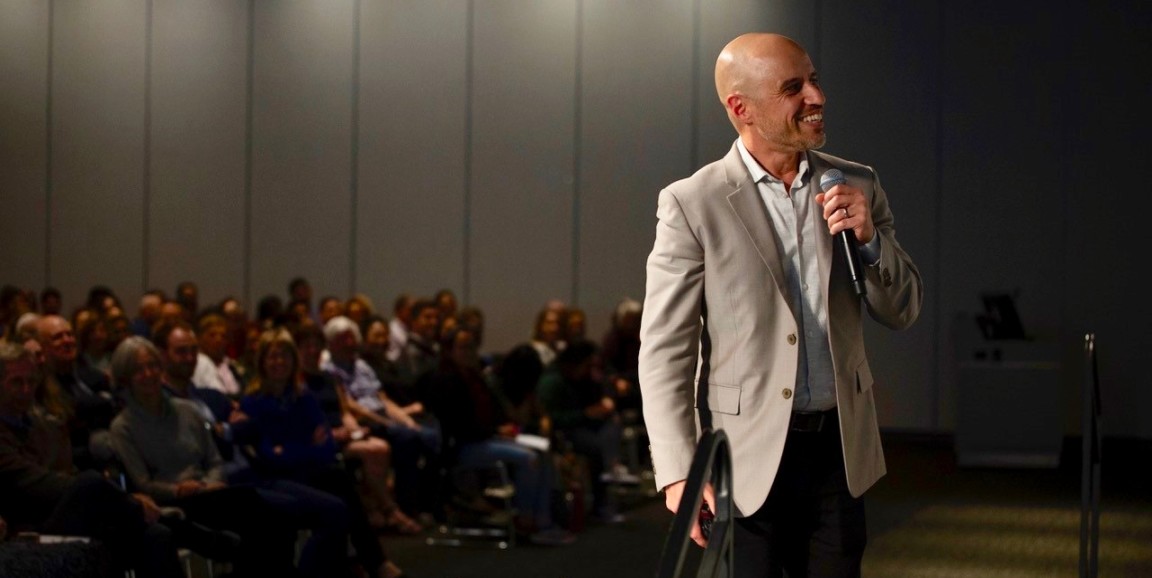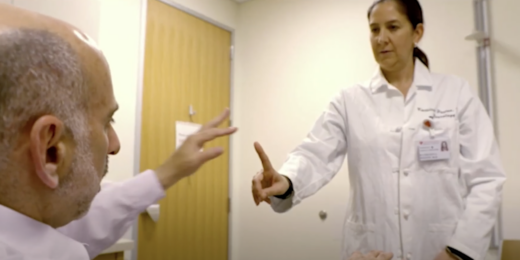Just before the 29th annual Jonathan J. King Lecture began, Stephanie Harman, MD, whispered to me, "it will be a different kind of talk this year." I nodded.
Speakers generally address serious topics at the lectureship honoring computer scientist Jonathan King, PhD, who gave the first presentation on empathy for patients before he died of cancer. This year, the speaker was Zubin Damania, MD, aka, ZDoggMD the physician-rapper.
I had no idea how this subject and speaker would mesh together, but I wanted to see it unfold live, and judging from the rows of people standing in Stanford Medicine's packed Berg Hall, so did a lot of others.
"Dr. Damania has tapped into the heart and soul of clinicians through his music, humor and inventive storytelling in his alter ego of ZDoggMD... he is a voice for the everyday clinician," said Harman, welcoming the audience to the event sponsored by Stanford's Center for Biomedical Ethics.
"I cannot introduce Zubin without talking about his time here in residency," Harman (a graduate of his residency program) said. "There's a legend floating around that Zubin brought a hobo hand puppet to hematology rounds to give report. I confirmed this."
Smiling wryly, Damania took the microphone. "Seeing all these people that I trained with, worked with, that were mentors to me, it's really moving. And now I'm going to sabotage all that by talking about this."
"Mr. King said something that stuck with me," Damania said. "We need to get closer to our patients and be with them where they are. You see Winnie the Pooh, but I see patient 30 out of 35. ... I'll present him to you, since this is Stanford and I feel like I'm back on rounds."

"I see an anxious, concerned visual affect concern for ICD-10 F41.80 anxiety with depressive features. I see a black, necrotic nose, which forces me to alter my diagnosis to ICD-10 F14.180 cocaine abuse with induced anxiety. We have considerable central obesity, concern for metabolic syndrome and insulin resistance... and a complete absence of fingers and toes on all extremities."
The audience chuckled.
"Now I have 25 to 35 minutes... click, click, click 'Mr. Pooh, what are your allergies and medications?' And he says, "Oh bother. Isn't that in your computer?'"
With Mr. Pooh taken care of, Damania turned to the audience -- in the past, health care was simpler, he said. Growing up in Clovis, California, Damania witnessed his physician-father's "Health 1.0" kind of care. "He knew every family member, he knew their story," Damania said.
Then the more tech-focused "Health 2.0" health care model emerged, which emphasized patient volume.
In 2013, Damania explained, he opened a startup called Turntable Health and pursued his vision of health care, "Health 3.0", a blend of the best parts of the previous models.
At Damania's clinic, patients had more time with health care providers; they sat side-by-side in the exam room to view the electronic health record; and patients had access to in-house yoga, meditation and a kitchen to learn to cook nutritious food.
Eliminating co-pays by offering flat monthly fees and federal subsidies to patients was a key first step towards this goal, Damania said. "If you want to see patients when they're well to keep them well, why would you charge them a copay and keep them out?"
The clinic was a success for patients, but investors preferred a fee-for-service model of health care. Turntable Health closed in 2017 and his career as radio host and performer ZDoggMD took center stage.
Many of his musical parodies are in the style of his childhood hero, Weird Al Yankovic, but one parody is perfectly serious.
"What hurts us the most [as clinicians] is torturing people at the end of life because someone didn't have a conversation," Damania said.
To encourage people to have these conversations, Damania wrote a song about a caregiver and patient's perspective of death called, "Ain't the Way to Die," a parody of "Love the Way You Lie," by Eminem and Rihanna.
Damania performed the song for the audience.
"My dad [listened to this song and] called me," Damania said. "He said 'I don't like rap music.' Then he said, 'I've never told you what I want.'"

"It was worth it just for that," Damania said. He performed two more songs and then he invited the audience to gather around him and he snapped a selfie.
Photos by Holly Alyssa MacCormick (center image) and Connor Crutcher




